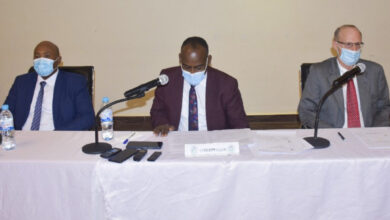By Ashleigh Aldridge
The University of Alabama at Birmingham’s Office of the Vice President for Diversity, Equity and Inclusion has received a $1.25 million ADVANCE grant from the National Science Foundation.
The three-year grant is designed to assist with the Alabama ADVANCE Partnership for Achieving Gender Equity in STEM to advance UAB faculty in science, technology, engineering and math fields that will build on prior NSF ADVANCE initiatives at the university.
The grant will enable UAB to join with the University of Alabama at Huntsville and three of Alabama’s historically black colleges and universities: Alabama A&M University, Miles College and Oakwood University in a partnership to implement evidence-based activities that will lead to new policies and/or policy changes that promote gender equity for STEM faculty in the academic workplace.
Paulette Patterson Dilworth, Ph.D., vice president for UAB Diversity, Equity and Inclusion, serves as principal investigator of the Alabama ADVANCE Partnership for Achieving Gender Equity in STEM. Each HBCU has a designated co-principal investigator.
“UAB has been a leader in efforts to advance gender equity in STEM, so it makes perfect sense for us to continue our leadership in this area,” Dilworth said. “The number of women obtaining science, technology, engineering and mathematics doctoral degrees has increased steadily in recent decades. However, women continue to be underrepresented in STEM academic positions, especially at senior ranks and in leadership positions.”
The prior ADVANCE work was successful in addressing or changing policies and procedures focusing on implicit bias in hiring, tenure and promotion decisions that could lead women and individuals from different racial and ethnic populations to be evaluated less favorably, thus perpetuating historical under-participation in STEM academic careers.
The ADVANCE partnership will focus on intersectional, inclusive and intentional approaches to address systemic change strategies that promote equity for all STEM faculty in the academic workplace. Intersectional approaches that address systemic change for STEM faculty are the recognition that gender, race and ethnicity do not exist in isolation from one another and other dimensions of social identity.
“We plan to utilize this partnership by implementing changes in practices and policies that inhibit gender equity and inclusion in STEM at partner institutions,” Dilworth said. “By gender we mean gender in terms of social identity. We also plan to increase representation and visibility of women, racial, ethnic minorities and other social identities in STEM departments by improving recruitment, retention and promotion practices and policies.”
This article originally appeared in The Birmingham Times.




